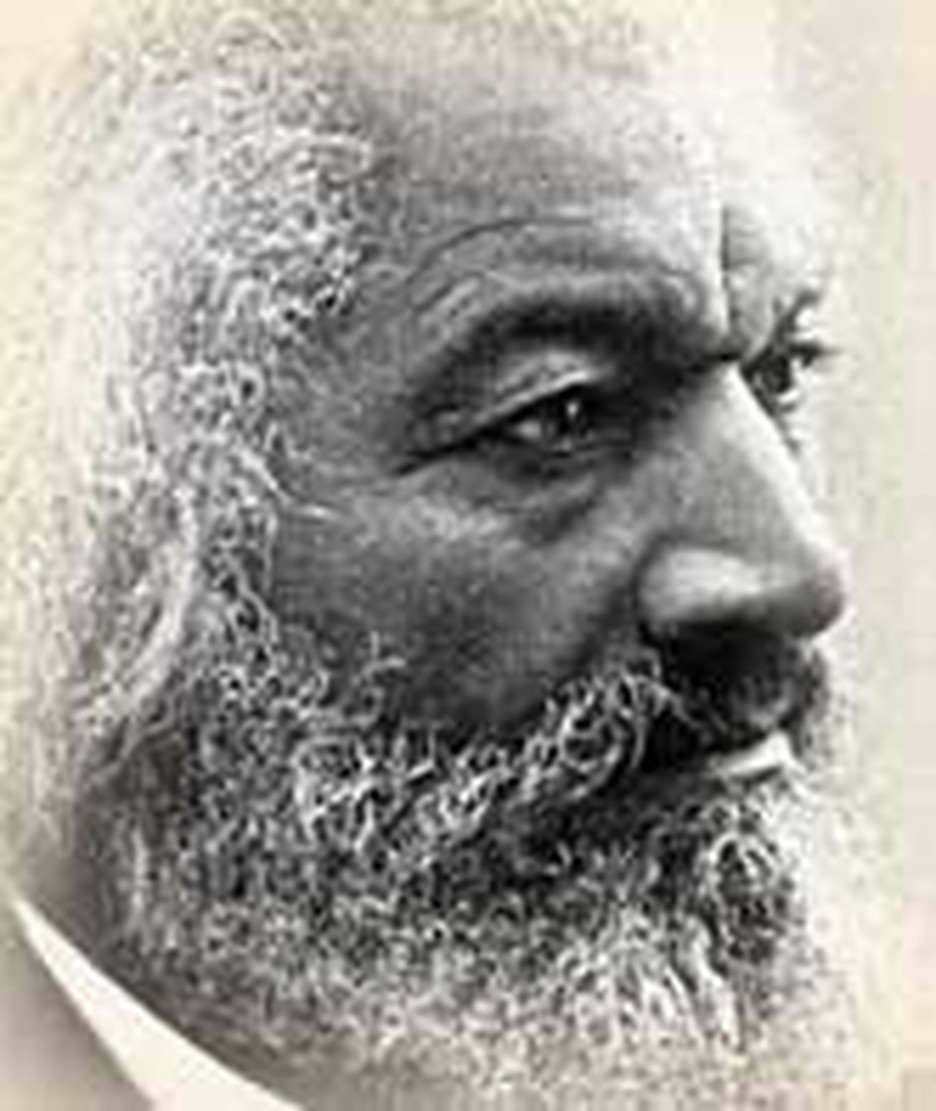
Thirteen-year-old Frederick Douglass longed for a protector. He was a slave in Maryland, working as a house servant and as a ship calker in Baltimore. A white Methodist minister showed him that God could be his father. "He thought that all men, great and small, bond and free, were sinners in the sight of God; that they were by nature rebels against his government; and that they must repent of their sins, and be reconciled to God through Christ."
"Though for weeks I was a poor broken-hearted mourner traveling through doubts and fears, I finally found my burden lightened, and my heart relieved. I loved all mankind, slaveholders not excepted, though I abhorred slavery more than ever. I saw the world in a new light and my great concern was to have everybody converted. My desire to learn increased, and especially did I want a thorough acquaintance with the contents of the Bible."
His owner's wife helped him learn to read and write, and Frederick made the most of his opportunites: he read the Bible and the local newspaper constantly. Years later he said, "...he who does not improve himself by the motives and opportunities afforded by this world gives the best evidence that he would not improve in any other world."
When a saintly old black man named Uncle Lawson told him that God had a great work for him to do, Frederick believed--in spite of circumstances. Those circumstances changed in 1838 when he escaped to New Bedford, Massachusett. Encouraged by the abolitionist William Lloyd Garrison to become a speaker for the Massachusetts Anti-Slavery Society. Frederick not only became an important spokesman in the abolitionist cause, but he was influential in the temperance and women‘s rights movements. He lectured in both the United States and Europe, edited four newspapers and wrote three versions of his autobiography.
When he met President Lincoln during the Civil War, he was the first black man to be formally presented to a President of the United States. Later he received government positions in the administrations of Presidents Harrison and Garfield. In 1889, under Benjamin Harrison, Frederick was appointed minister-resident and consul general to the republic of Haiti.
He became the first African-American to hold high office in the United States government. His Autobiography opens a thrilling window on the times. Although confessing himself a Christian to the end, Frederick rejected the church of the day, which had permitted--even endorsed--slavery. How could a slaveholder profess to believe in grace while he brutally held and abused slaves?
He died on February 20, 1895, a man who achieved great things through persistence, pluck, hard work and Christian hope. In his lifetime, he was as well-known as any black person in America. But to get there, he had traveled a long road from his slave-cabin beginnings.
Resources:
- Adapted from an earlier Christian History Institute story by Diana Severance, Ph.D.
- Douglass, Frederick. Autobiography. New York: Bonanza Books, 1962.
- Various encyclopedia articles.


